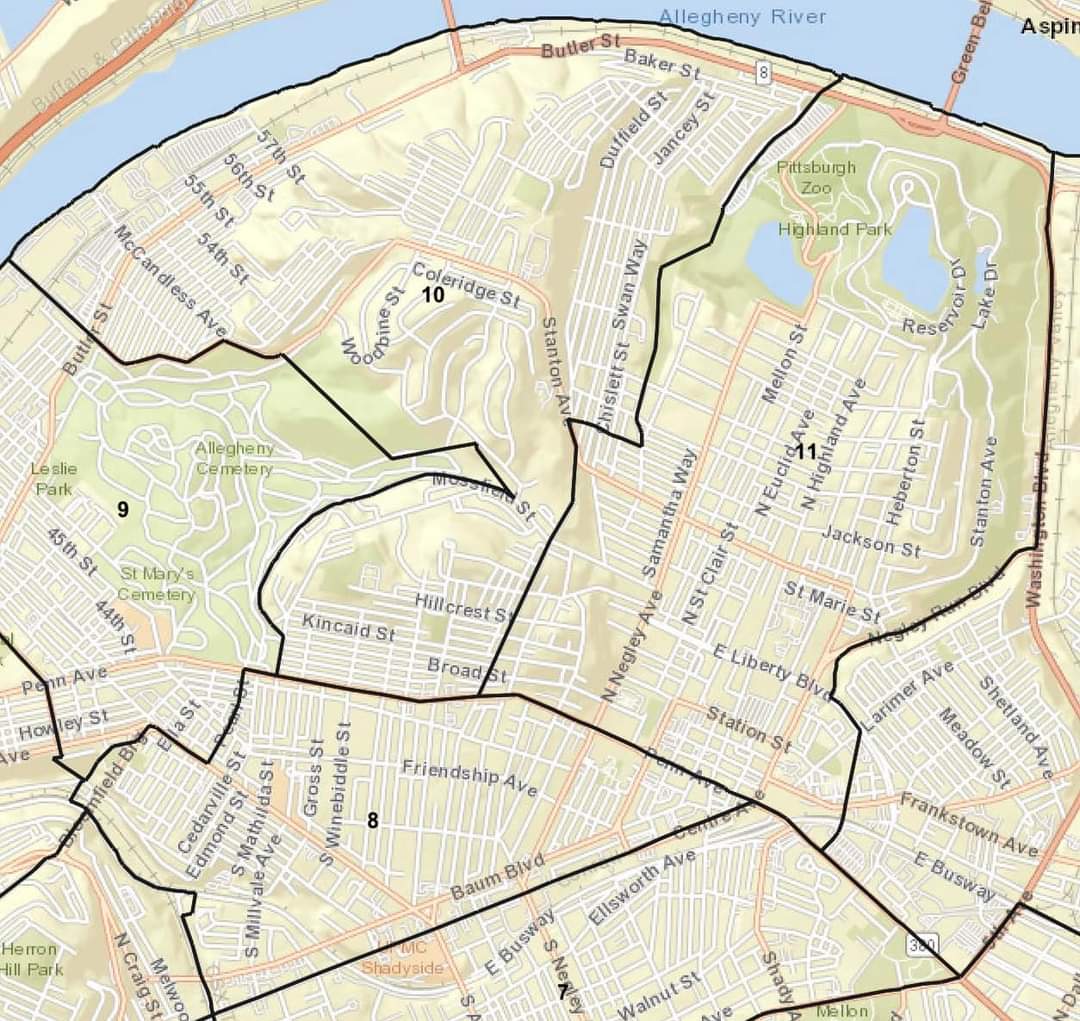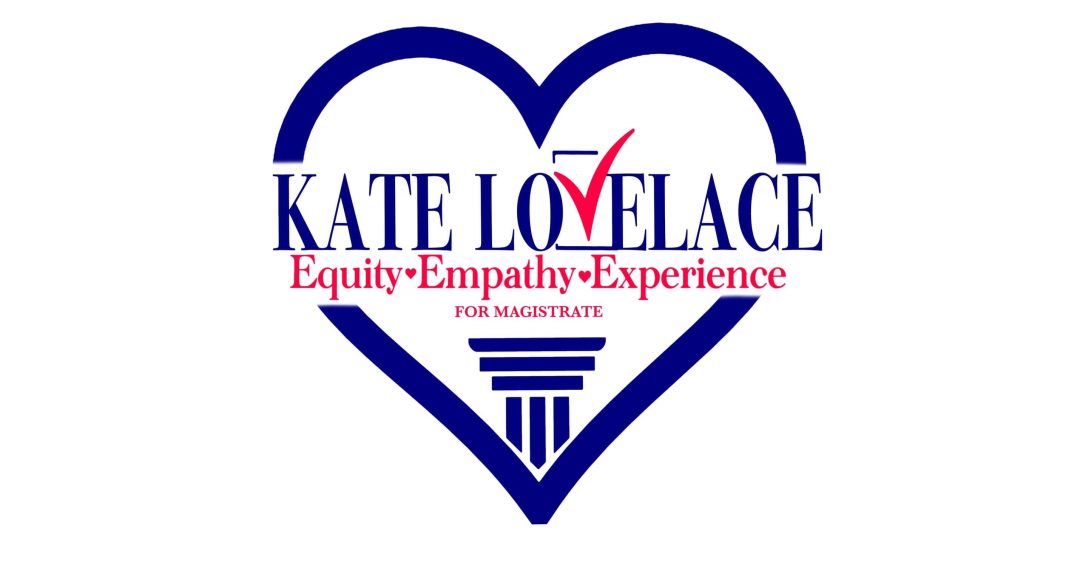
When I see data about percentages of people with mental health conditions in the jail, I always shake my head because if you didn’t have a mental health condition on the way in, you will on the way out. Allegheny County Jail is not a safe place for our community and if Magistrates aren’t watching the Jail Oversight Board meetings every month, they’re not paying enough attention.
Our next post of our 2023 primary election season series ‘Political Q&A’ with progressive candidates throughout Pennsylvania. Candidates can be anywhere in Pennsylvania running for any level of office. Please note that these are not necessarily endorsements, more of an opportunity for candidates to connect with the LGBTQ community, progressives neighbors, and others with an interest in Western Pennsylvania. If your candidate would like to participate, please contact us pghlesbian at gmail dot com. We welcome candidates at all levels of government across the entire Commonwealth.
By participating, candidates are saying that they
- must be an LGBTQIA+ ally, specifically supporting equality and dignity for transgender persons
- identify as pro-choice
- must affirm that President Joe Biden won the 2020 election and that they accept the certified Pennsylvania’s election results
I’ve learned so much about the role of the Magistrate in the judicial system from this series. When Kate agreed to the Q&A, I was pleased to learn even more about this elected office, Her breakdown of the multiple indignities of ‘system burden’ families experience in the court systems is eye opening. She also has a great summary of the magisterial role. I haven’t met Kate in person, but I really appreciated that she diligently followed up on this Q&A, one I think you’ll find enlightening.

Your Name: Kate Lovelace
Your Pronouns: she/her/hers
The Office You Seek: Magisterial District Judge 05-2-31
How do you describe your identity? I am a cishet white woman, mother, and advocate.
Tell us about your district. What is a hidden gem most people might not know about?
If you look around on the trails and streets around the Highland Park Reservoir, there are little, rodent-size “rooms” made by some joyful human. They’re often little holes at the bottom of trees where someone has put little furniture and made art in nature. Every time my kids find one, they feel like they’ve found a treasure in a castle.
How has redistricting impacted your district?
I’ve been in this district for the better part of 40 years. I’ve seen Home Depot replace Sears all the way to Whole Foods replacing Penn Plaza apartments. Change is good but comes with growing pains. We have more local opportunities, more jobs, more food, and these small businesses bring neighborhood esteem. But the displacement of our families and their histories is tragic. Affordable housing is a crisis for most of the families I work with now and many of them are in this district.
Tell us about the first LGBTQ person you met and what impact they had on your life?
I am an only child raised by a single parent but very lucky to have a village of adults in my neighborhood to help raise me. Although they presented as straight in the 80s, many have come out since then and live happier lives. So I cannot remember the first LGBTQ person I met, but my first memory of acknowledging the word “gay” was when I was 5 years old and my next door neighbor was killed in a hate crime and my father had to explain that to me. I had already experienced death so the idea that someone could be killed for this reason shocked me.
Please tell us about your familiarity with the LGBTQ community in your district and the region?
I’m always learning more about the LGBTQ community all over this region. Especially in the past few years, as I’ve been building my own idea of holistic representation in this county, I’ve learned even more about the resources as my clients access them. Much of being able to represent a person individually is respecting their needs and their support system so I’ve been very lucky to visit and make friends with allies like Qmunity, Hugh Lane, SisTers PGH, and of course I live just a hop away from the self-professed “gayest coffee shop in town,” T’azza Doro.
Based on this, what do you understand to be our top LGBTQ concerns and priorities for the judicial system? How will you respond to those priorities?
Everyone in our judicial system needs to be treated with more respect regardless of identity and I see room for that improvement in a lot of ways in a lot of different courtrooms. I’ve represented transgender, nonbinary, and other clients who have shared so many experiences of mistreatment by so many people in so many contexts before they even appear in court. There’s a dire need for our judiciary to catch up to our community standards, and that means respecting people’s appearances, pronouns, and context of the reason they have a case in court. It also means having no tolerance for the systemic mental abuse this population is receiving during interactions in school, with law enforcement, and at the Allegheny County Jail.
One of the other more critical issues I see is that police officers and district attorneys often try to proceed on criminal charges simply because the act occurred without laying any foundation as to intent. Now, the burden of proof for the Commonwealth is low at a criminal preliminary hearing, but it’s still their burden and, as a Magistrate, I’d expect the Commonwealth to at least attempt to meet this burden on every case in front of me.
Please give an example of how intersectionality has informed your work.
In my 18 years practicing law, and the years before, I have always been acutely aware of the intersectionality my clients and this community face. I’ve worked as attorney in psychiatric hospitals, as a public defender, as a parent advocate, and as a juvenile attorney. When a child gets charged by the school for behavior that is a manifestation of a disability, that child misses school for court, the parent misses work, transportation, child care, elder care, these are all things a family has to consider to attend one court hearing at a magistrate. If they receive a fine, they may ask relatives to help pay it so it doesn’t come out of the rent money.
I’ve seen so much intersectionality and so many ways it has affected so many individuals and families; that is why I started a holistic representation clinic in Allegheny County called Locally Served. When a parent has to fight two branches of government (police and child welfare) to get their freedom and their family back, they need consistent, compassionate legal representation combined with social work and lived experience. These families do not need to go to two or three offices to be assigned 3-6 lawyers who will never truly understand the intersectionality not just of identity, but in the home and in the courtrooms. By that I mean understanding that one child may identify as transgender and one may have a developmental disability, both may be suffering in school, and all of these things are important to understand if you’re truly going to be an advocate for people. I think intentionally understanding intersectionality deserves a bigger place in our courtrooms.
Please give an example of when a colleague has persuaded you to change or adjust your perspective on an issue.
I teach high school students at City of Bridges. A few years ago, they complained to someone else that I used the term “guys” and it was not inclusive. My first thought was I meant absolutely nothing by it! My feelings were hurt. Secondly, why didn’t they come to me themselves? So I learned from that to be more thoughtful of all the language I use, create a space where people feel comfortable challenging me, and continue to always learn, especially from the children.
Magisterial District Judges are perhaps the ones who have the most contact with constituents, but are often not well understood. Please describe the role of the Magistrate in the judicial system.
The Magistrate is the first point of contact most people have with the legal system and, hopefully, the last. I would like it to be the last more often. Magistrates hear small civil claims, landlord/tenant, neighbor disputes, summary cases including children, traffic, non-traffic, and criminal preliminary hearings. The last three, however, are heard on a city-wide basis by the city magistrates, meaning the last three types are heard in Pittsburgh Municipal Court, not in our community magistrate court. Additionally, Magistrates approve and deny search warrant requests, set bonds and bond conditions, order behavior clinic evaluations, and explain your early rights. They cannot give legal advice. I would like people to believe that magistrates do not have to be processing courts as they often are now. Constituents should feel confident they are electing someone who will encourage due process, participation, and equity.
That being shared, what impact does being a LGBTQ culturally competent magistrate have on the community?
Magistrates should not care at all about the identity, masked or presented, of the people coming before them. They should be mindful of the words they use, the looks they give, and normalize using their own pronouns in an effort to encourage others to feel safe doing the same. If magistrates are not aware of the research and data on LGBTQ youth and mental health, they would be wise to educate themselves as this has a larger-than-you-think problem with bullying and self-esteem in our schools and in our homes. If nowhere else, people should feel respected by their judiciary and the judiciary has not only a duty to respect that, but to protect especially children who are dealing with these stressors.
Most people do not realize that magistrates are not required to be lawyers or even have any legal education – or high school diplomas – in Pennsylvania. You are dealing with intricate matters involving
evictions, arrest warrants, protection from abuse orders, truancy, and bail hearings among other issues involving very vulnerable neighbors. These are life altering scenarios that if not properly executed could leave legal loopholes to derail justice. Knowing people and understanding the issues is one thing, but knowing the law seems essential. It isn’t just about making good decisions, it is about making legally sound decisions. How does your experience as a lawyer prepare you for this particular role?
I think I understand better than most attorneys how these things play out and how the law is being applied and how it should be applied. For instance, the only reasons for cash bail are you are a) dangerous to the community or b) flight risk. Yet for 18 years, I’ve been watching Magistrates pass out bail based on the allegation or even just the criminal code section of the charge. This isn’t justice and this is just one example. One of the other more critical issues I see is that police officers and district attorneys often try to proceed on criminal charges simply because the act occurred without laying any foundation as to intent. Now, the burden of proof for the Commonwealth is low at a criminal preliminary hearing, but it’s still their burden and, as a Magistrate, I’d expect the Commonwealth to at least attempt to meet this burden on every case in front of me.
On your website, you describe “system-burden: the total, cumulative consequences of court system interaction on both the individual and the community including health, social, and financial costs.” In
addition to treating people before the judge fairly and respectfully, what are some concrete examples of how to address these burdens.
Here’s the best example I can give that might be most familiar to our BIPOC community: unconstitutional, racially motivated traffic stops continue to happen every day in our city. These can take 30-90 minutes of a driver’s day. They may have their children in the car, watching their parent be handcuffed and searched for a traffic violation. A day care drop off and shift start time have already been missed. Possibly a job has been lost or another parent didn’t make it to their obligation because of this unconstitutional hourlong delay to that person’s day. All that happened and that is living in traumatic stress on a daily basis. I don’t have to leave my house an hour early because I might be pulled over. That would never occur to me as something I need to factor into my day. And now this parent has to come to court to pay a ticket, the lowest they think they can get, to get out of this courtroom as quickly as possible with as little consequences. I understand that because I’ve asked many clients to do that. But that $25 fine comes with $150 of court costs and a gut punch to the parent’s dignity. Just as I have started having trials on traffic cases in front of Magistrates, I encourage my constituents and peers to do the same. The expectation that someone should come in to court, put their head down, say thank you, ma’am, to get out quickly so the rest of us can go home to OUR children is unacceptable. Give people a chance to fight their cases. I win some and I bet they would, too! Not everyone needs to walk out of court with a piece of paper that proves someone else “won.”
Additionally, I’d like to make a sensory-friendly office, which I believe is very possible as Magistrate Pappas had a lot of input into making that office friendly in general. I’d also like to have as many school cases as possible be held by video IF the parent/child prefers because this is, again, a system-burden for families who have multiple stressors to have to appear for literally childish behavior or to punish mental illness in children.
How do competitive primary elections benefit the residents of a community?
I think competition brings all of the candidates out of their comfort zone. For me, it makes me willing to talk about things in a more authentic, progressive way than I would if I had no competition. I am an outspoken nuisance in court but I’m not a natural politician. I’m not used to bragging about my successes. I think competition makes all of us think more carefully about what we really stand for and what we can truly offer so we distinguish ourselves. This district hasn’t seen a female magistrate and it’s nice to give them that option.
What are three reasons people should vote for you/support your campaign?
Well, I’m running on Equity, Empathy, and Experience. I believe I have all three so I’ll lay it out.
Equity: I’ve been to every magistrate court in this county and every surrounding county on every type of case, truly. I see the patterns of injustice. I assure my constituents that I have always treated my clients for who they are and not how they look or present to me or what the charges claim. I vow to continue that practice on the bench.
Empathy: For a long time I didn’t understand what made me so different as an attorney, according to my clients, but it’s empathy. I want to hear the stories. I want the context. I want to understand how we got here before I decide that an arbitrary $200 would make it right.
Experience: I have the most experience. I’ve worked as a provider, an insurer, and at the County Department of Human Services. That was all before I went to law school. Since then, I’ve been representing people who are most marginalized, most at-risk, most in need of a fierce advocate in the courtroom. I stand by my record and my clients stand by me.
Tell me about your other endorsements and supporters.
I’m still getting into this process but you can always check back on my social media as I get endorsements and more support.
Is there anything you’d like to add?
In all the years I’ve been practicing in Pittsburgh Municipal Court, I didn’t see a woman on the bench until after the 2021 elections. 76% of women are in jail for less than 30 days and those bails are being set by a largely male consortium of magistrates. We waste money and resources of the county and the human resources of women when we incarcerate and remove them from families for minor infractions and short stays. When I see data about percentages of people with mental health conditions in the jail, I always shake my head because if you didn’t have a mental health condition on the way in, you will on the way out. Allegheny County Jail is not a safe place for our community and if Magistrates aren’t watching the Jail Oversight Board meetings every month, they’re not paying enough attention.
I want to hear the stories. I want the context. I want to understand how we got here before I decide that an arbitrary $200 would make it right.
Where can readers find your campaign on social media?
Kate Lovelace for Magistrate | Pittsburgh PA | Facebook
twitter: @katelovelace412
Thank you, Kate.
Other Q&A’s in this election cycle series. You can read previous cycle Q&A’s here.
- Q&A with Rachael Heisler, Candidate for Pittsburgh City Controller
- Q&A with Abigail Salisbury, Candidate for PA State House District 34
- Q&A with Erica Rocchi Brusselars, Candidate for Allegheny County Treasurer
- Q&A with Bethany Hallam, Incumbent Candidate for Allegheny County Council, At-Large
- Q&A with Tracy Royston, Candidate for Pittsburgh City Controller
- Q&A with Lita Brillman, Candidate for City Council, District 5
- Q&A with Kate Lovelace, Candidate for Magisterial District Judge 05-2-31





